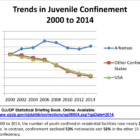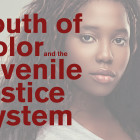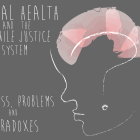
The Unlikely Reason Arkansas’ Juvenile Justice System Is Behind the Times
|
Over the past two years, Arkansas’ juvenile justice system has burst into the news repeatedly — and for all the wrong reasons.
Juvenile Justice Information Exchange (https://jjie.org/author/dmendel/)

Over the past two years, Arkansas’ juvenile justice system has burst into the news repeatedly — and for all the wrong reasons.

Why so much bad news lately from Arkansas on juvenile justice? A toxic political climate has thwarted progress to date, but momentum is building and signs suggest that meaningful improvement may be on the horizon.

Combined with revolutionary advances in brain science and adolescent development research, the Chicago Crime Lab studies help to clarify the dimensions of a new and more targeted approach for combating delinquency and improving outcomes for high-risk youth generally. If only our nation’s juvenile justice systems took proper notice.

In Connecticut, new revelations of a rash of suicide attempts and pervasive use of physical restraints and seclusion are causing hot debate.
Earlier this month, JJIE columnist John Lash devoted a long commentary to a controversial new study that is currently making waves throughout the Oregon juvenile justice system.

Why the evidence behind even the most highly-regarded treatment models for court-involved youth isn't nearly as strong as advertised.

Perhaps the most important thing our nation can do to reduce juvenile crime — and also to boost youth success in general — has nothing to do with juvenile courts or corrections systems.

Reading through JJIE’s extensive coverage regarding racial and ethnic disparities in juvenile justice over the past month, reviewing its excellent new DMC resource hub, and scanning the available literature, it is impossible to avoid a couple of painful conclusions.

In a pair of feature stories published yesterday, (on Georgia's reform efforts and issues and two young men in the system) JJIE described two modes of intensive at-home treatment that show great promise to improve outcomes for emotionally disturbed youth in the delinquency system, both of which cost far less than incarceration or treatment in a residential treatment center.

Georgia leaders are embracing reform in juvenile justice, but serious gaps and significant roadblocks still prevent many emotionally-troubled youth from receiving the best and most cost-effective care.